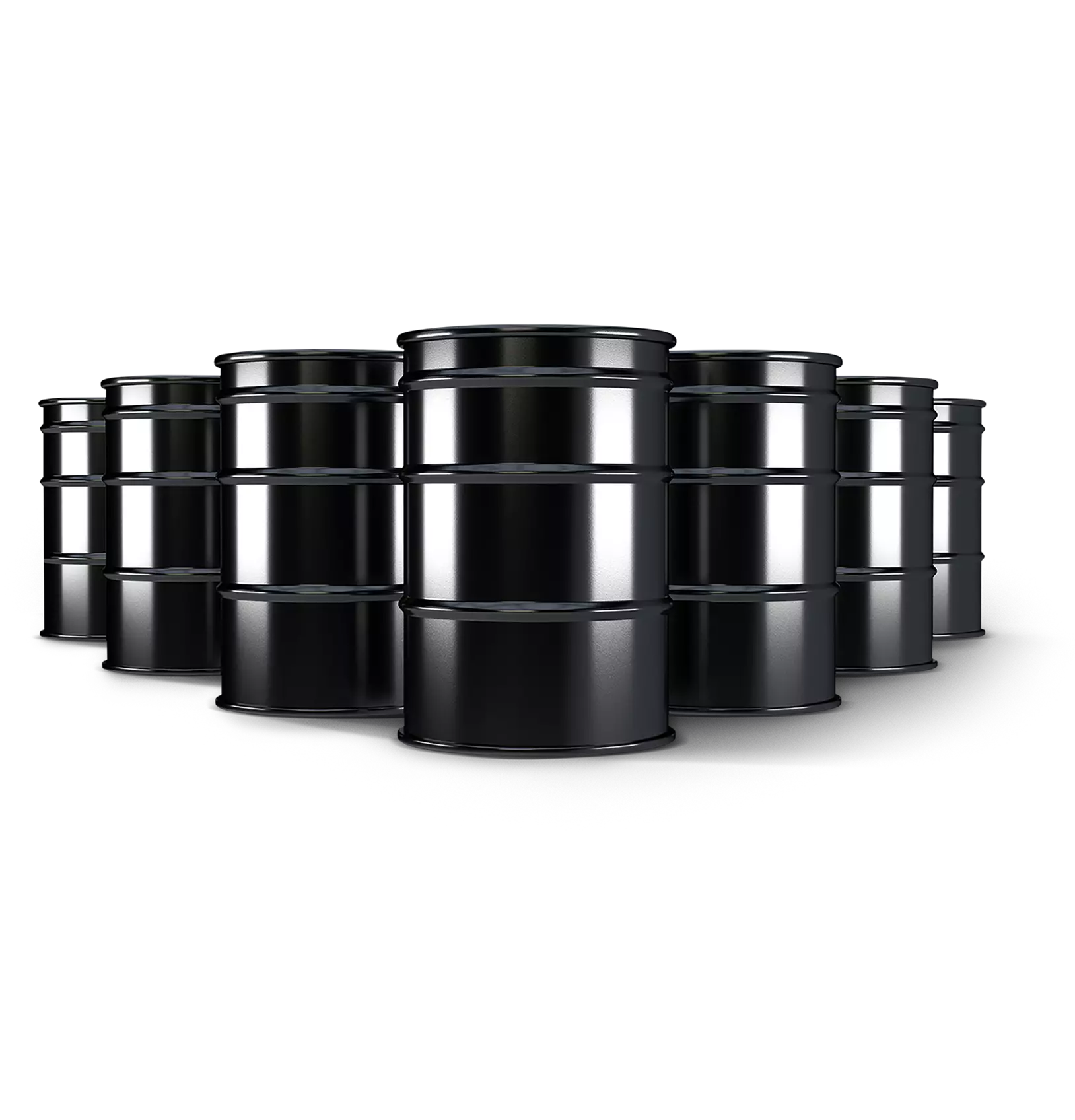Choose A Manufacturing ERP
Which Manufacturing ERP Software Is Best For Your Business Type?
Which Manufacturing ERP Software Is Best For Your Business Type?
Apr 24, 2024
 Andy Pickard | Senior Solutions Consultant, Sales
Andy Pickard | Senior Solutions Consultant, Sales
As you know, the manufacturing industry is incredibly diverse. Manufacturers come in all shapes, sizes and styles: from family-run start-ups to global enterprises; batch manufacturers to JIT (just-in-time) manufacturers; and broad-base manufacturers to niche industry specialists.
Is it possible then to find manufacturing enterprise resource planning (ERP) software that works for every type of business? And, can everyone benefit from ERP technology?
The simple answer is a resounding yes. The benefits of ERP technology are universal: increased efficiency, reduced costs, enhanced service and better resource management. By integrating all aspects of a business, from supply chain management to production scheduling and financial reporting, ERP systems help manufacturers of all types achieve greater agility and competitiveness in the ever-evolving market.
The key to unlocking these benefits is finding the right ERP software for your manufacturing business type. As well as choosing a flexible and scalable solution, you’ll need a system designed to fit the unique requirements of your manufacturing operation straight out of the box.
To help your organization find the best-fit solution, we’ve taken a closer look at the in-built features you should look for when choosing manufacturing ERP—to reflect even your operational infrastructure and your sub-industry.
Manufacturing ERP Software By Industry
Although there are general manufacturing ERP solutions available on the market, these tend to be very generic in their functionality. This means your company wouldn’t get the detailed functionality you need to drive operational improvement.
The businesses that benefit most from manufacturing ERP software investment are the ones that choose industry-specific solutions with features that deliver solutions for your unique industry needs as standard. Here are a few examples of specialized manufacturing ERP systems for distinct sectors.
1. Industrial Manufacturing ERP Software (also known as Discrete Manufacturing ERP Software)
The industrial manufacturing process involves complex assemblies and multiple components. Features exclusive to discrete manufacturing ERP software can help with shop floor management and make production flow easier. For example, industrial manufacturing ERP technology includes tools for generating a bill of materials (BOM) when quotes are converted into jobs, to provide a complete list of parts required for every order.
BOM information can be integrated with a materials requirement planning (MRP) module within discrete ERP, to help industrial manufacturers coordinate inventory and order management through a single database. Our complete guide to industrial manufacturing ERP contains more details on this.
2. Process Manufacturing ERP Software
Process manufacturing ERP software offers dedicated features that support the highly precise batch production process, including recipe and formula management capabilities to calculate quantities and document versions/revisions. Inventory management tools also help to store ingredients appropriately and control their shelf life using lot traceability—minimizing wastage and enhancing quality control.
Our blog post on the difference between discrete and process manufacturing ERP systems offers further specifics on the benefits of choosing a process-specific solution for enterprise resource planning.
3. Food Manufacturing ERP Software
With strict industry regulation and a need for high quality, food and beverage manufacturing ERP software is designed to help companies produce consumable goods to consistent standards. Integrated features include allergen management tools and lot profitability functionality, to realize detailed costs including labor, duty, haulage and rework.
An industry-specialized food ERP also provides bidirectional traceability to ensure transparency and reduce product recalls, as well as facilitating quicker more efficient recalls if needed. In addition, food quality control capabilities assure compliance and customer satisfaction.
For a deeper dive, read our ultimate guide to food ERP.
4. Fashion and Apparel ERP Software
Almost no other industry is subject to as rapid trend shifts as the fashion market. Therefore, having apparel ERP software purpose-built to help your business deliver new styles to market quickly while balancing complex supply chain challenges, calls for greater sustainability and high production costs is vital.
For example, when choosing an apparel ERP system look for a system with an in-built vendor management portal to help you streamline supplier onboarding, improve communication with partners and increase turnaround times. For more information check out our blog on the top features to look for in an ERP for the apparel industry.
“We met some [other ERP providers], and they looked like sharp people, but they didn’t look like they knew who we were. The Aptean folks had a lot of great energy and they really knew our industry well, which made this transition and implementation a lot easier.”
Manufacturing ERP Software By Sub-Sector
Even with an industry-designed ERP system, sometimes manufacturing organizations need niche functionality to drive your business development and optimize operational costs.
If this rings true for your company, it’s worth looking at whether there is manufacturing ERP software on the market that has been developed for your sub-sector, like the examples below.
1. Cosmetics ERP Software
Cosmetics ERP software empowers personal care manufacturers to balance customer preferences with strict legislation and rising operating costs. It integrates features specific to the industry, like formula management and labeling tools, alongside core functionalities of manufacturing ERP. This empowers organizations to achieve greater efficiency, ensure regulatory compliance and ultimately deliver high-quality beauty products to market faster. Discover how global skincare company Crown Labs is benefitting from an industry-specific ERP.
2. Dairy ERP Software
Whether it’s calculating the variable weight of cheeses, accounting for allergen management in ice creams or tracking the component breakdown of raw milk, purpose-built dairy ERP software provides capabilities to conquer the unique industry challenges of dairy businesses. See how Bongards Creameries digitized data and automated processes to unlock greater efficiency in its dairy operation.
3. Chemicals ERP Software
In the high-risk chemicals industry, chemical sector-specific enterprise resource planning technology is available to help you improve materials management. For example, automatically generating certificates of analysis (CofAs) to ensure quality control and industry compliance without placing a huge administrative burden on the shop floor.
We’ve written a blog post on 4 ways chemical ERP software improves manufacturing operations if you’d like to find out more.
4. Fresh Produce ERP Software
When time is of the essence, speed of production is critical, without compromising quality control. Discover how Green Valley Pecan has used fresh produce manufacturing ERP software to set up quality control checks at each step of the manufacturing process, from cracking through to packaging, tracking millions of products each year. Or, find out how Packaged Produce Solutions is leveraging key fresh-specific functionalities to drive growth in its produce operation.
5. Fabricated Metals ERP Software
An industry-specific solution can help fabricated metal manufacturers increase accuracy and speed of production to manage critical sector issues such as shorter product lifecycles, quicker deliveries and demand for customization. To find out more, read Aptean’s complete guide to fabricated metals ERP or take a look at how upgrading to a fabricated metals ERP solution enabled The Metalworking Group (MWG) achieve 86% on-time deliveries within a year of making the software switch.
6. Nutraceutical ERP Software
Industry-specific ERP technology automates many of the processes that enable functional food and supplements companies to stay compliant in the highly regulated nutraceuticals industry, such as product labeling and batch quality control, along with tools for formulation management.
Plus, it provides a business intelligence feature to help nutraceutical manufacturers identify new business opportunities in this diverse, fast-growing sector. For further information read: Does Your ERP Solution Know Nutraceuticals?
Manufacturing ERP Software By Manufacturing Mode
In addition to finding manufacturing ERP software designed for your sector, it’s important to consider how your mode of production influences what you need from operational technology.
Consider the current manufacturing challenges you’re experiencing, and how they can be solved with the right-fit ERP solution:
Just-In-Time (JIT) Manufacturing
While the JIT model allows manufacturers to run a lean operation, real-time inventory management using a single database is critical to ensuring this production method runs smoothly. Look out for manufacturing ERP software that closely integrates order management with materials requirement planning and allows you to get an up-to-date view of current inventory levels at any point in time.
Batch Manufacturing
Batch production is an efficient way of creating goods to a consistent standard, but one error can compromise that whole group of products. Investing in manufacturing ERP software that focuses on lot traceability, quality control and formula/recipe management will enable you to minimize the chances of mistakes and cross-contaminations. It will also allow you to recall products quickly if a batch becomes compromised.
Make To Order (MTO) Manufacturing
Producing goods to meet specific customer requirements works well when there’s a relatively short production time, however this relies on speed and reliability in your manufacturing process. Choosing manufacturing ERP software with predictive machinery maintenance and overall equipment effectiveness (OEE) capabilities or tight integrations with purpose-built systems will help you manage production uptime effectively maximizing the speed and quantity of your output.
Make To Stock (MTS) Manufacturing
Anticipating future demand enables your customers’ businesses to be ready when orders arrive, but it relies on highly accurate forecasting. Selecting manufacturing ERP software with sophisticated business intelligence and analytics capabilities will enable you to model future demand based on previous order history.
“The greatest benefit for me is that when our employees go home at night and take their computers—or if they are on the road and working—they can still get things done in the system. The fact that nobody has to use a VPN is great in my opinion.”
Manufacturing ERP Software By Operational Setup
We’ve looked at industry, sub-sector and production mode so far. There’s just one element left to consider when analyzing what businesses can benefit from manufacturing ERP software. And that’s internal infrastructure.
Whether you’re running a single or multi-site business will have a major impact on your choice of ERP software, because the operational demands will be very different if your team members are split across multiple locations.
For multi-site manufacturers (including organizations where people work from home) it’s very important to choose cloud-based manufacturing ERP software. This is so that colleagues can access system features easily and collaborate remotely—making decisions that drive business development, even when they’re not face-to-face.
The key differentiator with cloud-based manufacturing software is that information is provided from a single source of truth available to any device with an internet connection—regardless of location—so you know that everyone is viewing and using the same data for complete consistency and alignment.
Even if you’re only running a single site today, you may want to choose cloud-based manufacturing ERP software with a view to future expansion. Best-fit industry technology should grow with your business, rather than requiring you to replace it when your company moves to the next level.
How To Choose Manufacturing ERP Software That Delivers Business Benefits
Every type of business can benefit from manufacturing ERP software. But as we’ve demonstrated above, there are many facets of your organization to consider before you invest in a system. And the options available to you can vary according to who your customers are, how quickly your business is maturing, and which operational model you prefer.
Nevertheless, choosing the right manufacturing ERP software is crucial to unlocking the most benefit and avoiding needing to replace the system shortly down the line. Here are some key factors to consider to ensure you pick a platform that delivers real value for your business.
Your Needs and Goals
Analyze your existing processes and identify areas for improvement
Consider your growth plans and how your manufacturing ERP should support them
Essential and Industry-Specific Functionality
Ensure the software covers essential functionalities like production planning, inventory management, material requirements planning and quality control
Look for features that cater to your specific industry, such as traceability for food or advanced scheduling for complex products
Scalability and Integration
Choose a system that can scale with your business
Ensure the ERP integrates seamlessly with your existing accounting, customer relationship management (CRM) or computer-aided design (CAD) software to avoid further data silos
Implementation and Support
Select a vendor with experience in your industry and a proven implementation methodology
Make sure the vendor offers ongoing support for training, troubleshooting and future upgrades
User Experience and Accessibility
Consider the user interface and ensure it's intuitive for your employees to adopt the new system effectively
Factor in how your users will be able to access the software—for example consider cloud deployment to help with remote working and mobile accessibility for on-the-go-working
While ERP implementation can be a daunting and time-consuming project, good preparation can help you streamline the process and ensure you end up with the right system for your business.
The above tips are a good start, but putting together a full selection criteria matrix will help you shortlist providers. See our summary table below.
ERP Software Selection Criteria
Get Matched With the Best Aptean Manufacturing ERP for Your Business Goals
Working with an experienced technology vendor who has a strong track record in manufacturing can help your business get your ERP investment right first time.
The right provider knows your industry inside-out and can help you choose ERP software that’s designed for your type of business, in order to drive rapid ROI and ensure your chosen system will scale with your company. They won’t try to convince you that a generic ERP system will meet your specific needs.
Here at Aptean, we’ve got decades of experience creating manufacturing ERP solutions that are designed to offer specialized value straight out of the box, including industrial manufacturing ERP software, process manufacturing ERP software, food ERP software and apparel ERP software. We’ve also developed niche solutions including bakery ERP, cosmetics ERP, fabricated metals ERP, fresh produce ERP, nutraceutical ERP and many more.
What’s more, with Aptean’s tailored ERP solutions, you get more than just software; you gain a strategic partner dedicated to optimizing your manufacturing processes and accelerating your growth. Our in-house teams are on hand to provide technical expertise, best practice advice, proven implementation processes and by-your-side support.
And finally, our manufacturing software ecosystem is designed with scalability in mind, allowing your technology platform to grow with your business. Along with our range of cloud-based manufacturing ERPs, we provide a full suite of complementary cloud solutions, including product lifecycle management (PLM) software, overall equipment effectiveness (OEE) systems, and transportation management system (TMS) tools. By partnering with us, you can rest assured that you are investing in a solution that will drive long-term success and keep you ahead of the competition.
Before you worry about the best technology option for your business type, get in touch with an Aptean ERP expert. We’ll listen to your needs and guide you to the best-choice manufacturing ERP software.
Get in Touch Today to Speak to a Software Industry Expert
To grow your business, you need a purpose-built ERP for process manufacturing. We're ready to help—reach out today for your free no-obligation consultation.



